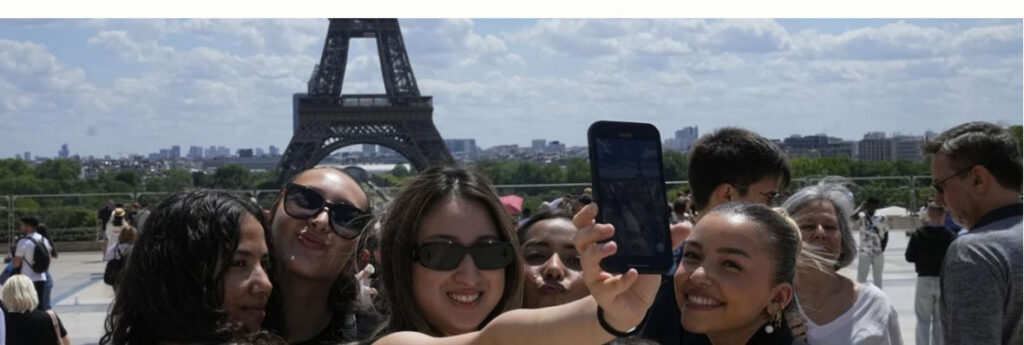Despite last week’s significant and well-publicized protests in France, government officials are still painting a rosy picture and promising an overall “great season” for tourism.
Tourists to France last week were faced with the eruption of public anger nationwide following the recent police killing of 17-year-old Nahel Merzouk.
The fatal shooting sparked protests, along with vandalism, throughout the country, including Paris, though the violence ebbed by the end of the week.
Officials from the Ministry of Economy and Finance held a meeting Thursday with representatives of the tourism industry to discuss the unrest has had on France’s tourist activity and international image.
Hotel owners cited a drop in bookings in some areas, including up to 30% in Marseille, and local and national reports cited international flight and hotel cancellations driven by fear, adding to the property damages that businesses suffered during several days of violence.
But the minister overseeing trade and tourism, Olivia Grégoire, refuted those numbers during Thursday’s meeting, calling the figures “pessimistic and wrong,” yet acknowledged that the government is currently unable to provide official data about damage caused.
The ministry vowed to help tourism establishments impacted by the violence, which included days of clashes between young people and police, the burning of cars and public buildings, and the looting of stores. Incidents hit about 500 cities and towns around France, including Paris.
Some of the measures include postponing or erasing debt for those businesses and offering partial unemployment benefits to employees who are unable to work because of the unrest.
“Let’s not add anguish to anguish, and problems to problems,” Grégoire said. “We have everything to make this season a great season.”
She added that there’s “no wave of cancellation or postponements of flights from or to Paris. “The fact is that restaurants, hotels, and shops are open… in Paris, Marseille, and Lyon, and this is the most important thing.”
The tourists thronging to the French capital during the protests took extra precautions but seem largely unfazed.
“Basically, we’re looking around and making sure that where we are seems safe (and) if there’s any police presence,” said Valisha Ismail, a 40-year-old visiting from South Africa. “If there’s a large crowd, then we try to move away from that.”
Others said they felt safe because of the prominent police presence in the streets of the French capital. Heavily armed officers patrolled past Dior and Cartier boutiques on the Champs-Elysees avenue as part of an exceptional, 45,000-strong nationwide police deployment that led to more than 3,000 arrests.
Johan and Jenna Haukbrauer, a couple visiting from Germany for the first time, said they were aware of what was unfolding but were nonetheless not discouraged.
“We checked the news, but we were fine because there are lots of policemen here and security forces, so for us it’s fine,” Johan said.
Gilda Stanbery, visiting her daughter outside Paris, said they weren’t able to come downtown during the most intense days of rioting. But a few days later, they could, and she said, “We are here now.”

